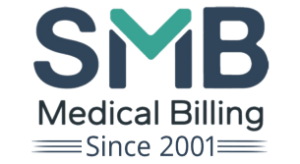As healthcare continues to advance, the medical billing industry must adapt to new challenges and opportunities. In 2025, several key trends are shaping the future of medical billing in the United States. Here’s what healthcare providers, billing specialists, and administrators need to know to stay ahead.
1. Increased Focus on Value-Based Care
Value-based care models prioritize patient outcomes over the volume of services rendered. This shift impacts medical billing as practices must align their billing processes with outcome-based reimbursements. Accurate documentation and coding are crucial to ensuring claims align with value-based care metrics.
2. Emphasis on Revenue Cycle Management (RCM)
Revenue Cycle Management is no longer just a back-office function—it’s a strategic priority. Practices are leveraging RCM solutions to optimize claim submissions, improve collections, and streamline patient billing processes. Outsourcing RCM to specialized firms is becoming a popular strategy, allowing healthcare providers to focus on patient care.
3. Simplification of Patient Billing
Patient billing remains a pain point for many practices. Simplifying bills with transparent breakdowns and easy-to-understand language can enhance patient satisfaction and improve payment rates. The adoption of user-friendly payment portals is also on the rise, offering patients flexible options to settle balances.
4. Regulatory Compliance
Compliance with federal and state regulations continues to grow in complexity. From implementation to HIPAA updates, staying compliant is critical to avoid penalties. Practices need robust auditing processes and ongoing training for staff to navigate these changes effectively.
5. AI’s Role in Streamlining Processes
While not taking over the industry, AI tools are helping with claims scrubbing, fraud detection, and predictive analytics. These tools assist in minimizing errors and speeding up reimbursement cycles. However, human oversight remains essential to ensure accuracy and ethical practices.
6. Focus on Denial Management
Denials remain a significant challenge, but advanced denial management systems and strategies are helping reduce their occurrence. By identifying patterns in rejected claims, practices can address root causes and improve their first-pass approval rates.
7. Enhanced Collaboration Between Providers and Billing Teams
Effective communication between medical providers and billing teams is crucial for accurate coding and reduced denials. Outsourcing billing services enhances collaboration by providing expert teams that stay updated on regulations and streamline processes. Dedicated account managers ensure smooth communication and fast resolutions.
In contrast, in-house billing teams can be costly and less efficient. High expenses for salaries, training, and technology, coupled with the challenge of keeping up with industry changes, often make in-house billing a poor value for money. Outsourcing offers a cost-effective, scalable, and expert-driven solution for optimal results.
8. Adoption of Advanced Technologies
Besides AI, technologies like blockchain for secure data management and cloud-based billing systems for flexibility are gaining traction. These technologies promise to improve efficiency and reduce administrative burdens.
Key Takeaway
The medical billing industry in 2025 is defined by its adaptability to change and commitment to efficiency. From integrating telehealth billing to enhancing RCM, the focus remains on providing seamless, compliant, and patient-centric billing processes. By staying informed about these trends, healthcare organizations can position themselves for sustained success.






